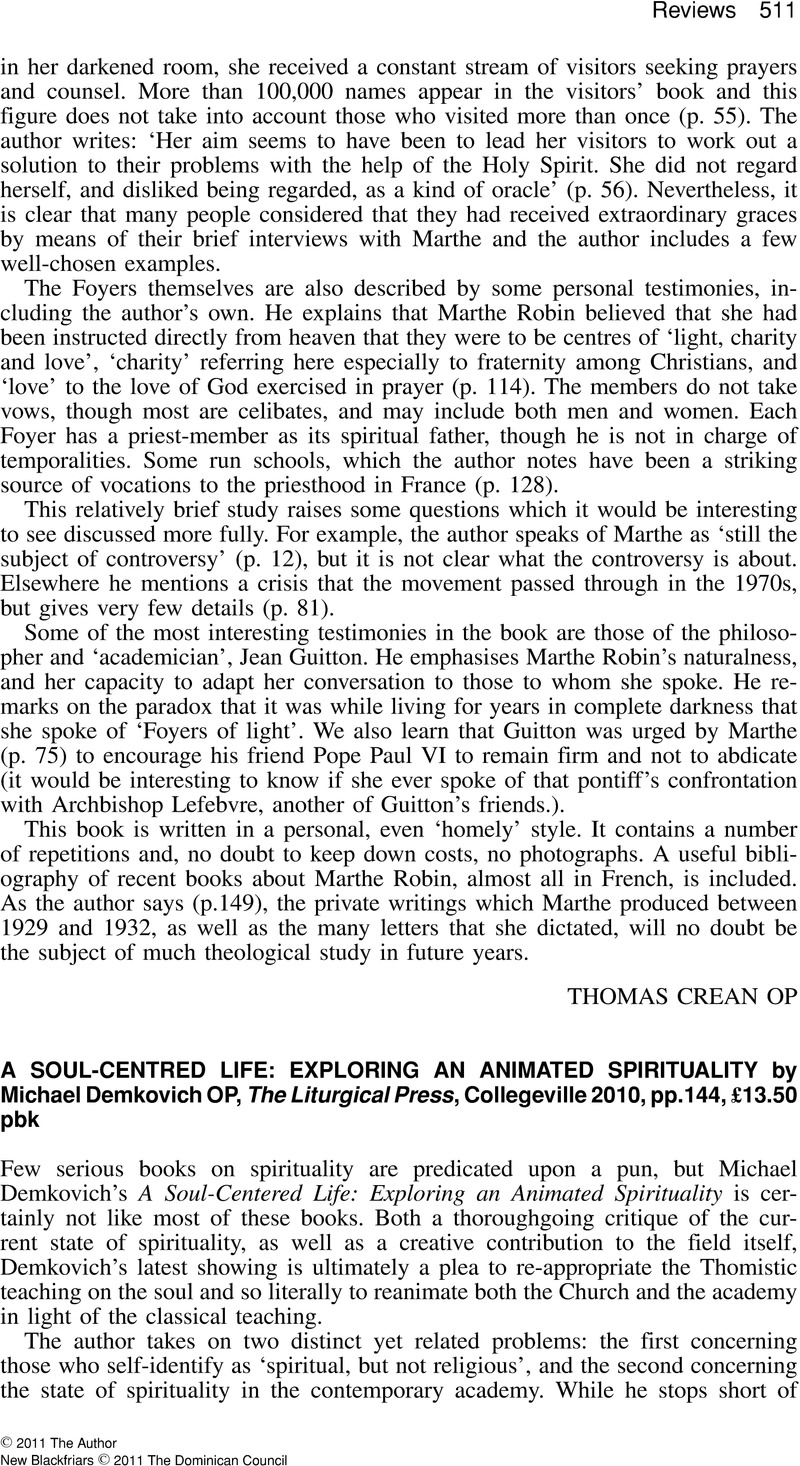No CrossRef data available.
Article contents
A Soul-Centred Life: Exploring an Animated Spirituality by Michael Demkovich OP, The Liturgical Press, Collegeville 2010, pp. 144, £13.50 pbk
Review products
A Soul-Centred Life: Exploring an Animated Spirituality by Michael DemkovichOP, The Liturgical Press, Collegeville 2010, pp. 144, £13.50 pbk
Published online by Cambridge University Press: 01 January 2024
Abstract
An abstract is not available for this content so a preview has been provided. Please use the Get access link above for information on how to access this content.

Information
- Type
- Reviews
- Information
- Copyright
- Copyright © 2011 The Author. New Blackfriars © 2011 The Dominican Council.

